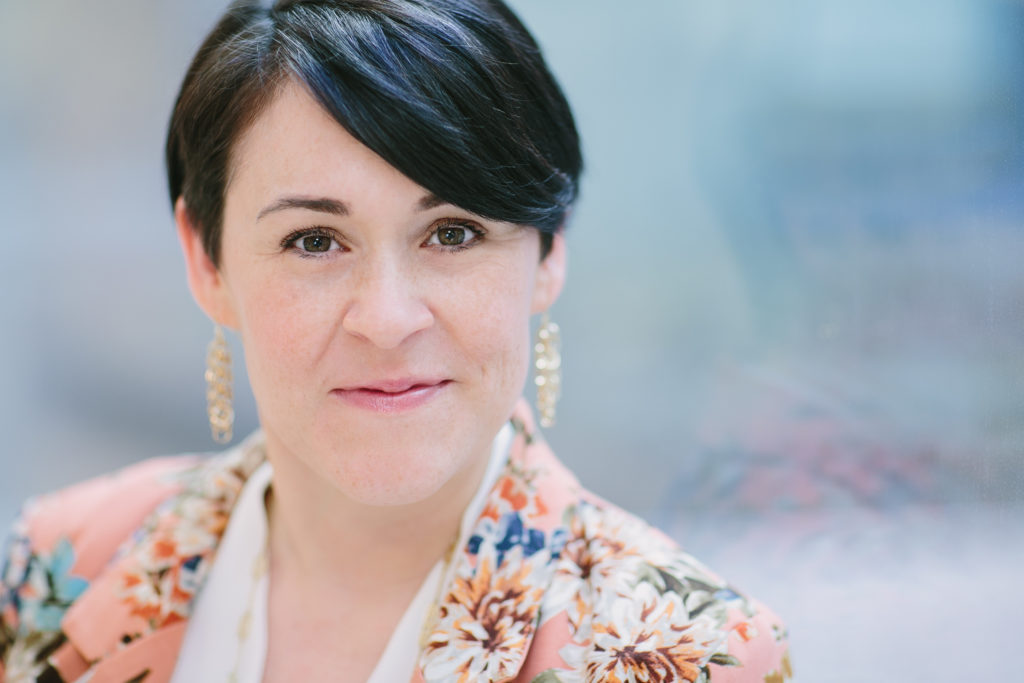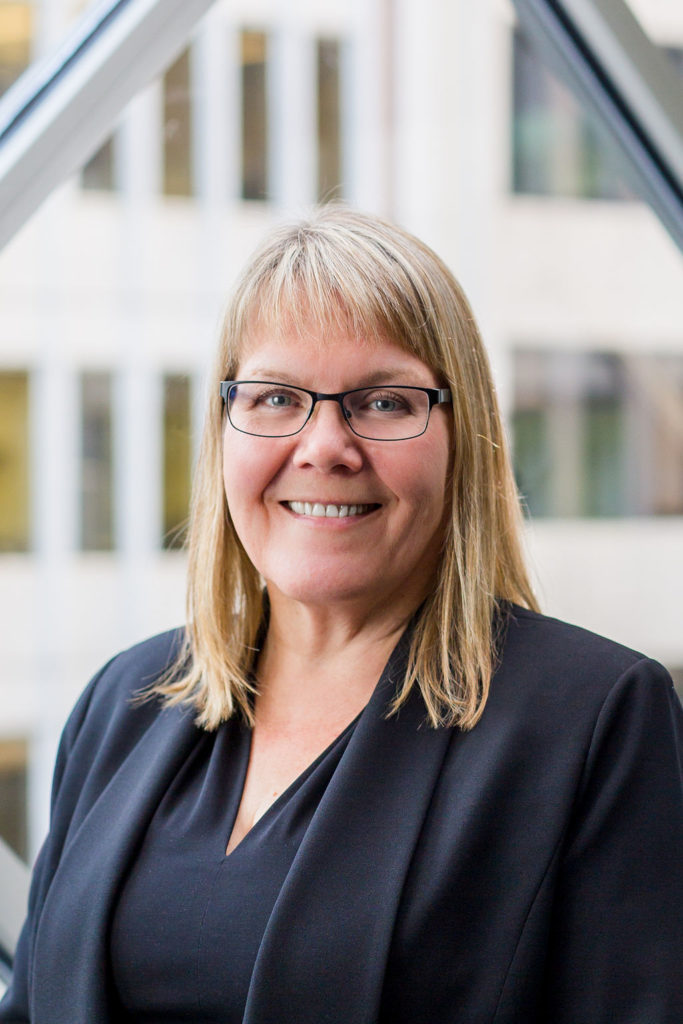
In honour of International Women’s Day, and in partnership with the BC Gender Equity Office, I’m sharing Champions for Equality, profiles of women in British Columbia whose work actively combats biases, broadens perceptions, and celebrates women’s achievements.
Genesa Greening, President & CEO of the BC Women’s Health Foundation
As a young girl, Genesa Greening was deeply impacted whenever she saw what she now knows to be injustice and inequity. “I wanted to do something,” Genesa says, “but it all seemed so big and impossible.” As she got older, and the world got smaller, she took in the enormousness of the task and asked herself, what are you prepared to do? She began to explore what her unique contribution to improving the world could be. “I was a girl from small-town Newfoundland with a high school education,” Genesa says, “I had my doubts along the way, but barriers are not dead ends– they’re just something to overcome.” Now, as the president and CEO of the BC Women’s Health Foundation, Genesa has turned her quest to better the world into a career.
It was not a journey without challenges—Genesa had to overcome the self-doubt that society and status quo can foster within women. She learned fairly early in her career to trust her instincts, and as she became more comfortable in hearing her own voice contribute to the discourse, she developed a deeper faith in her skills to take complex situations and create sustained, impactful solutions. She rejected the idea that, as a woman, she had to be “twice as competent and thrice as humble”. She allowed herself to make mistakes and make them openly. She no longer asked herself, “Am I as capable? Do I belong here?” The answer, she realized, was yes.

Genesa found inspiration in the late Virginia Greene, the former head of the BC Business Council, a member of UBC’s board of directors and former deputy minister. “Virginia had a rare combination of swagger and confidence,” Genesa recounts, “she carried herself with such grace and kindness that she was able to be effective in every space in which she operated.” Women like Virigina inspire Genesa’s advice to “surround yourself with smart, tenacious, and hard-working people”, to find mentors and squeeze every last ounce of learning from them. When the BC Women’s Health Foundation decided to invest in research, innovation, and education, in addition to advocacy for women’s equitable access to quality healthcare, Genesa could rely on her own “brilliant, creative, courageous women and allies”: researchers, physicians, patients, philanthropists, advocates, policymakers, and her team at the BC Women’s Health Foundation.
Genesa advises to not let the doubters and systemic roadblocks dissuade you. Inspiration, she says, exists in every corner, and her team relies on it daily. “If the BC Women’s Health Foundation had listened to those who said we couldn’t grow beyond being a typical transactional philanthropic organization supporting a singular (albeit incredible) hospital, we wouldn’t be at the forefront of advancing the full spectrum of women’s health,” Genesa says. “All of the greatest change, innovation, and social advancements originated from people who were told it couldn’t be done. Don’t listen. Be your greatest ally.”
Deb Bryant, CEO, YWCA Metro Vancouver
Deb Bryant’s initial experience entering the workforce was difficult. As young woman, she hoped to make a professional career as an artist but found few women in leadership roles, or even earning a living in the arts. Fellow female artists were struggling too, advising her she’d have to give up “everything” if she wanted to succeed. As a single mom, this felt impossible for Deb. A change in careers led to work as a literacy community outreach worker at the Carnegie Adult Learning centre. Working in the Downtown Eastside, where women went missing on a regular basis, Deb was struck by the inaction of those with authority, and the willful blindness of society to the ongoing disappearances. She was determined to “get upstream” to change the conditions that led people to Downtown Eastside.
Deb could see the challenges these women faced, conditions outside their control that led them to live in circumstances that left them vulnerable. “While it was vital we continued to support and intervene at an individual level,” Deb says, “we needed to look at real systemic change to ensure these things did not happen in the first place.”

Now CEO of the YWCA Metro Vancouver, Deb has years of experience working in community sectors. She describes the YWCA as a feminist organization: well run and well regarded, committed to providing top quality community-based services for women and their families. Organizations like the YWCA provide much needed infrastructure for society—they can amplify ideas and voices of women, do advocacy and systemic change work, and provide direct community programs, all under one umbrella.
In her 40s, Deb did a Masters in Organizational Leadership, and benefited from two female role models with significant leadership positions in her community. She describes them as “absolute powerhouse women”, whose guidance was incredibly impactful in leading her through the next steps of her life. She also worked with a coach for nearly a decade, who saw her potential and continued to challenge her throughout her career. Deb recommends surrounding yourself with the kinds of people you want to become— there’s no harm, she says, in asking for help.
Deb has seen the women’s movement change significantly, and for the better, with many more diverse voices being heard. The public story of second-wave feminism addressing women’s access to professional jobs, education, and the liberation of traditional family roles thanks to birth control, focused largely on white middle-class families. However, on the margins of that was the LGBTQ2S+ movement, women with disabilities, and women of colour who were very active but whose voices were a minority. “I think those voices are being amplified now,” says Deb, “and they are central to the dialogue we are having about feminism.”
It’s organizations like the YWCA that provide support to raise these voices and empower role models for all kinds of people. Some of the barriers faced by women are entrenched and very challenging, but people can achieve the impossible if they can imagine themselves on the other side. “When I look around at my colleagues, our partners and the people we work with, I see hope for the future in them,” Deb says. “It helps me hold on to the vision of achieving women’s equality. That’s what inspires me, keeps me going.”

